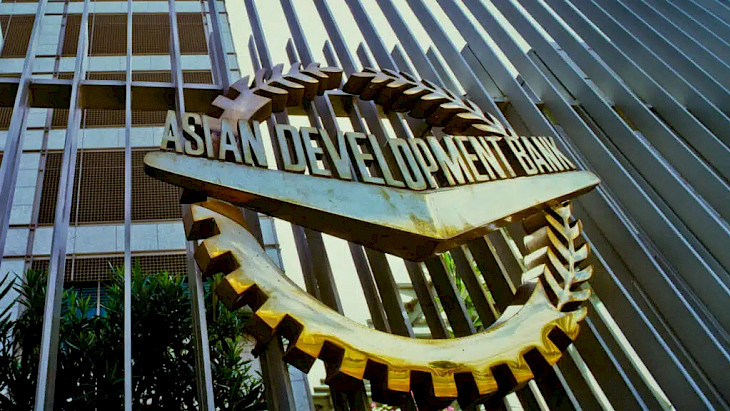The Asian Development Bank (ADB) placed two-year "green" international bonds on the Kazakhstan Stock Exchange (KASE) totaling 7.645 billion tenge (over $14.34 million) with a weighted average coupon rate of 13.94% per annum, reports Kursuv.kz.
During the subscription, six participants submitted 10 applications to purchase ADB bonds. Demand exceeded supply by 76%. Participants were willing to purchase bonds with coupon rates ranging from 13.85% to 14.1% (weighted average – 13.9454%).
The bank satisfied six applications from four participants, placing bonds worth 7 billion 644.66 million tenge with a coupon rate of 13.94% per annum. Of this, 77.1% of the bonds were purchased by banks, and 22.9% by other institutional investors.
The subscription took place on January 14, with settlements occurring on January 20. ADB had planned to place bonds with a face value of 1,000 tenge each, but the latest report does not specify the final price at which the bonds were placed (whether at face value or higher/lower than face value).
On January 17, the National Bank of Kazakhstan decided to maintain the base rate at 15.25%. This is the rate at which the National Bank provides its money to the economy, including to second-tier banks.
From 1994 to 2024, ADB financed projects in Kazakhstan totaling approximately $7 billion. This includes the bank’s participation in financing the construction of the international transport corridor "Western Europe – Western China," which runs from China through Kazakhstan to Russia and further into Europe.
Kazakhstan's President Kassym-Jomart Tokayev, during a meeting with ADB President Masatsugu Asakawa in November last year in Astana, mentioned the decarbonization of the economy as one of the key areas of Kazakhstan's cooperation with the bank, i.e., reducing its carbon footprint.
For his part, Masatsugu Asakawa stated that ADB is ready to continue close cooperation with Kazakhstan, including participation in large projects aimed at modernizing infrastructure, improving the social sector, and strengthening the investment climate of the country.
ADB finances energy projects. In particular, the bank was part of an international consortium of banks that financed the conversion of Almaty’s CHP-2 from coal to gas.
In 2023, the chairman of the board of Almaty Electric Stations (AES, which owns CHP-2 and is part of Samruk-Energo) Erlan Kirkinbaev announced that the consortium, which includes the European Bank for Reconstruction and Development, the Development Bank of Kazakhstan (DBK, a subsidiary of Baiterek), and ADB, would provide 80% of the necessary funds for modernization.
CentralasianLIGHT.org
January 20, 2025

